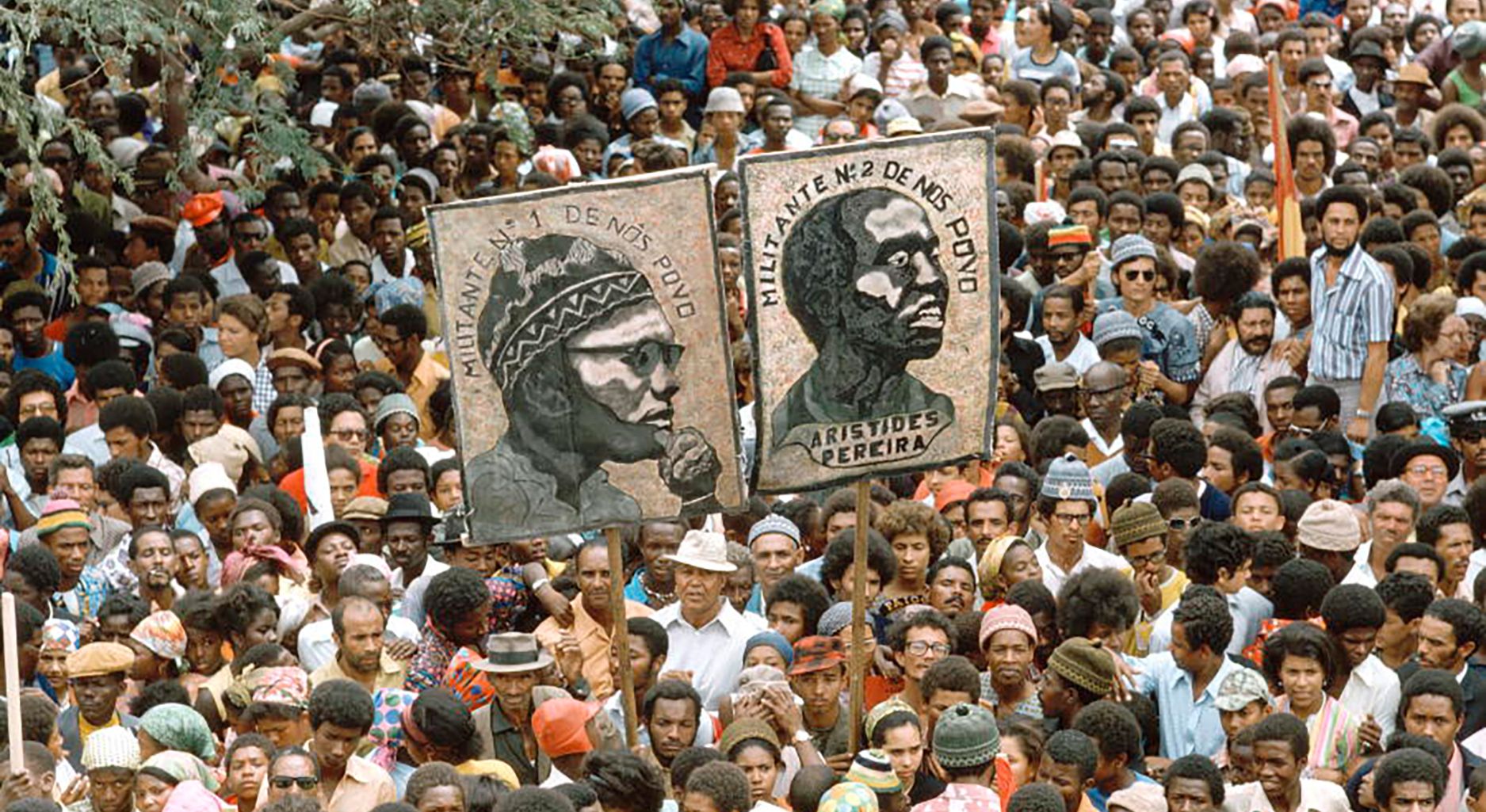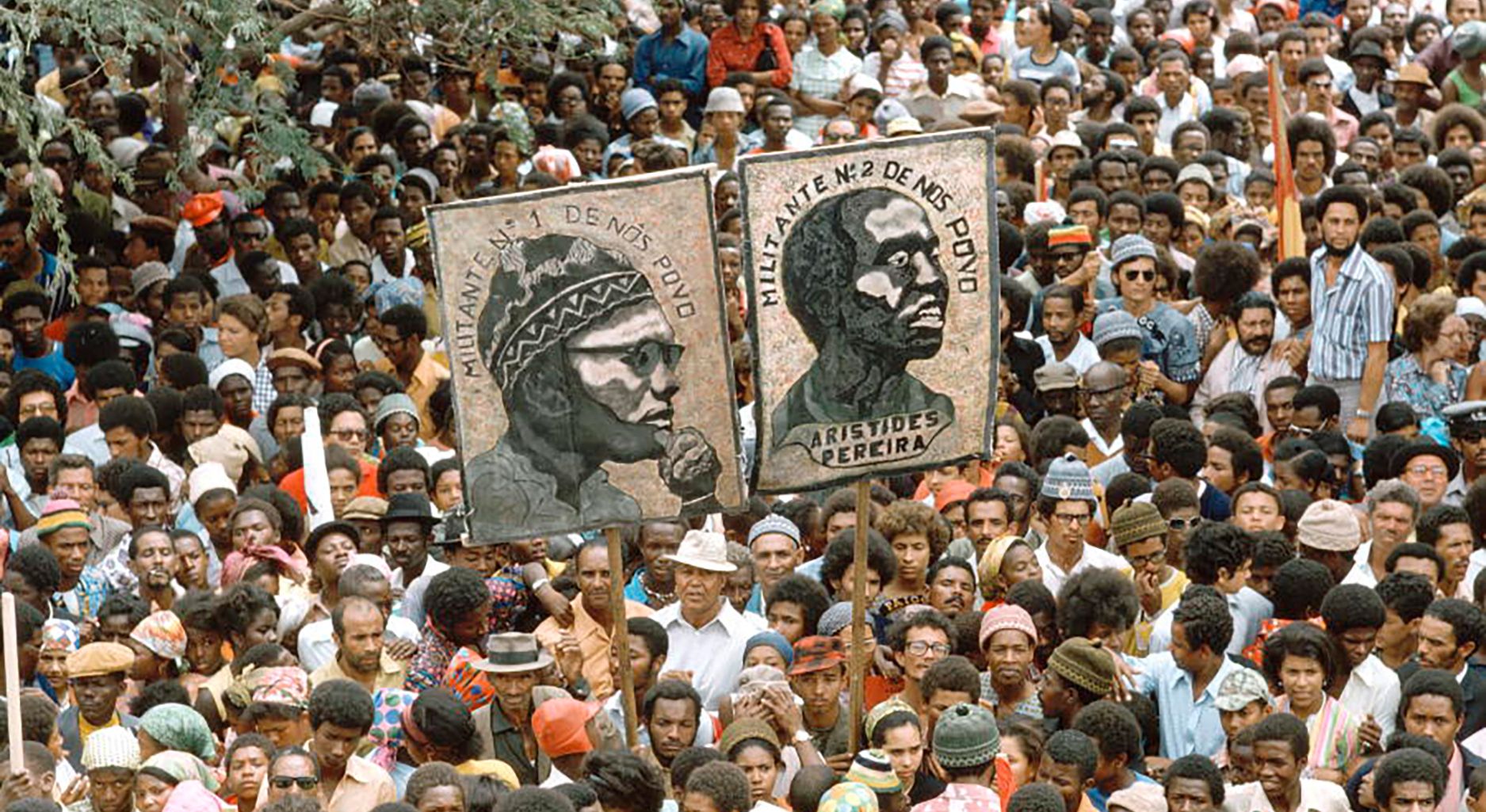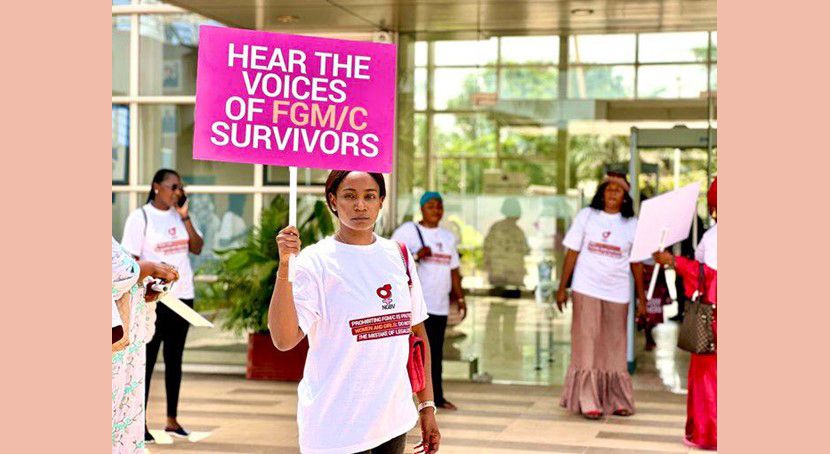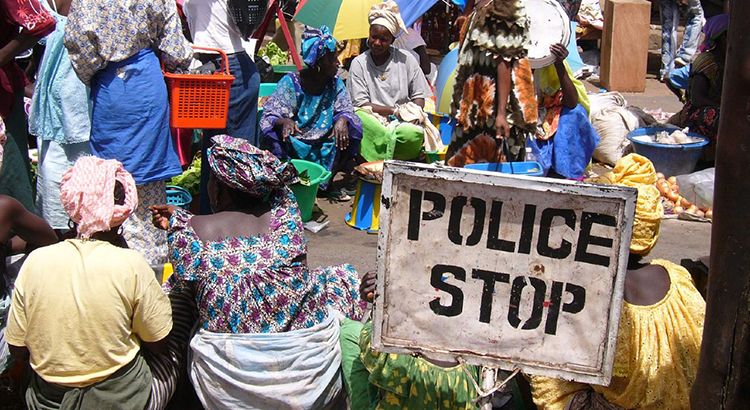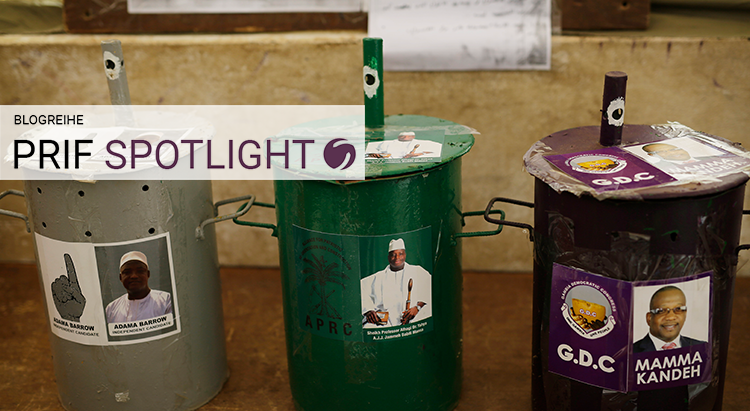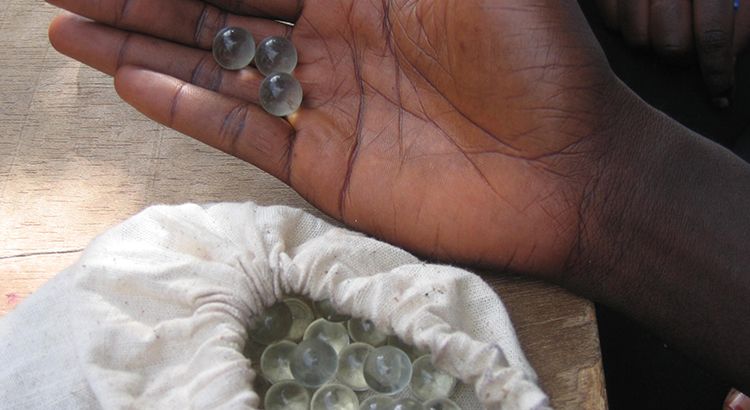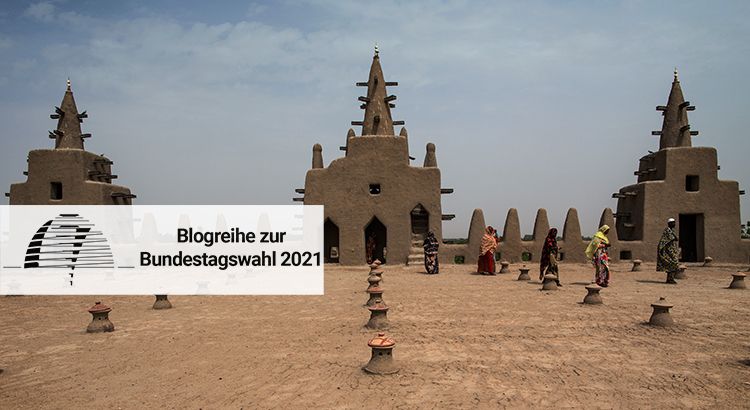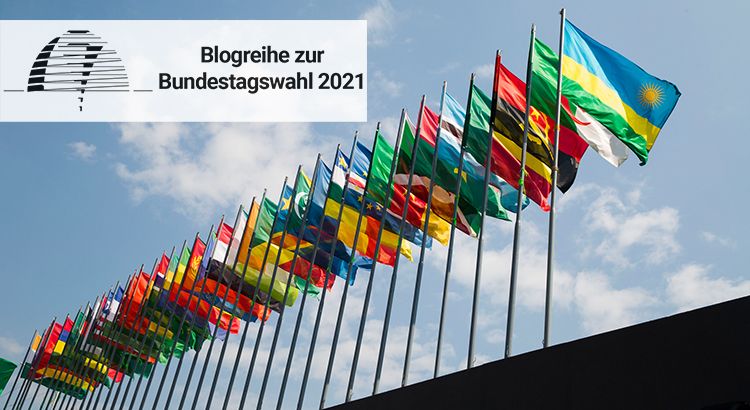Author: Sophia Birchinger
Sophia Birchinger ist wissenschaftliche Mitarbeiterin im Programmbereich „Glokale Verflechtungen“ und der Forschungsgruppe „African Intervention Politics“ der HSFK. In ihrer Forschung beschäftigt sie sich mit der Afrikanischen Friedens- und Sicherheitsarchitektur und Peacebuilding insbesondere durch afrikanische Organisationen AU und ECOWAS. In ihrer Dissertation untersucht sie aus einer Bottom-up-Perspektive die Wahrnehmung von Zwang in afrikanischen Friedensinitiativen in Gambia und Guinea-Bissau.
// Sophia Birchinger is researcher in PRIF’s Research Department “Glocal Junctions” and the Research Group “African Intervention Politics”. Her research focusses on the African peace and security architecture and peacebuilding as well as on African regional organizations AU and ECOWAS. Taking a bottom-up perspective, her PhD project explores how citizens experience the threat and use of coercion in African peace interventions in The Gambia and Guinea-Bissau. | Twitter: @birchinger
Os protestos da Geração Z mantiveram em suspenso durante semanas os governos do Quénia, da Nigéria, da África do Sul e do Uganda, entre outros. Fora do radar internacional, a Guiné-Bissau tem testemunhado recentemente protestos intergeracionais, após uma alegada tentativa de golpe no final de 2023. Manifestantes acusam o Presidente de ter orquestrado o golpe para dissolver o parlamento por decreto. Muitos na Guiné-Bissau agora contestam a presidência e exigem o cumprimento do calendário eleitoral, e a manutenção das eleições presidencias marcadas para novembro de 2024. Este artigo aproveita os protestos como um momento para ampliar a visão sobre o tópico, oferecendo leituras narrativas e contra-narrativas da tentativa de golpe para contextualizar a atual situação política.
Early Warning for New Trouble? Increasing Social Polarization in Guinea-Bissau
Gen Z protests have kept governments in, among others, Kenya, Nigeria, South Africa, and Uganda, in suspense for weeks. Off the international radar, Guinea-Bissau has witnessed cross-generational protests lately, following an alleged coup attempt in late 2023. Protestors accuse the President of orchestrating the coup to dissolve parliament by decree. Many in Guinea-Bissau now challenge the presidency and demand adherence to the election schedule, with elections set for November 2024. This blog post takes the protests as a moment to widen the view, offering both narrative and counter-narrative readings of the coup attempt to contextualize the current political situation.
Keeping up the Ban against FGM/C: A Strong Signal for Reproductive Health and Rights from The Gambia to the World
Despite a 2015 ban, Female Genital Mutilation/Cutting (FGM/C) remains practiced in The Gambia. A recent bill to repeal the ban now endangered legislative progress so many Gambian women have been holding onto as well as longstanding efforts of civil society organizations. On 15 July 2024, following extensive community engagement and advocacy, the bill was successfully rejected. In the face of a global backlash against sexual and reproductive health and rights (SRHR), what can activists worldwide learn from this success? This blog features an interview with Fatou Baldeh, founder of Women in Liberation and Leadership (WILL) and a leading activist in maintaining the FGM/C ban.
Security Sector Reform in The Gambia – The Historic Roots of Current Challenges
After a democratic change of power in The Gambia in 2017, the country embarked on a transitional journey. The Gambian government identified Security Sector Reform (SSR) as one of the key priorities in its National Development Plan. Five years in, Gambian citizens express doubts about the government’s seriousness to move the process forward and the progress of SSR remains limited. In this blog post, we take a historical lens to examine current challenges and suggest a long-term perspective in both looking back and moving forward.
The AU as Peacebuilder in The Gambia: Why pragmatic Peacebuilding is good, but not enough
The African Union’s (AU) peacebuilding efforts in The Gambia reflect the organization’s growing responsibility in this field. From 2018 to 2020, the AU deployed the African Union Technical Support Team to The Gambia (AUTSTG). Drawing on interviews and document and media analyses in 2020/2021, this PRIF Spotlight examines this novel mode of engagement and points out an emerging dilemma: The AUTSTG was successful as a technical and pragmatic intervention. However, this only came at the expense of supporting long-term political processes and thus undermined the AU‘s holistic peacebuilding policy.
#GambiaDecides2021: A Sign of Democratic Hope?
Wherever you go in the Gambia, you will find people in the streets chattering about the presidential election surrounded by an air of excitement. Gambians call this chatter ‘gisgis’ and it is all about politics these days. On 4 December 2021, Gambians went to the polls. The first elections without the former 22 year-long president Yahya Jammeh contesting passed peacefully. His successor Adama Barrow, elected in 2016 quite surprisingly, was confirmed in power. With that, the Gambia passed a litmus test: having decided for continuity in times of change, Gambians send a strong signal of democratic practice to the region.
Mehr Peacebuilding wagen? Die Parteipositionen zu Konfliktbearbeitung und Friedensförderung im Vergleich
Frieden ist weitaus komplexer als nur das Schweigen der Waffen. Die Herstellung friedlicher Lebensumstände ist damit nicht mit der Vereinbarung einer Waffenruhe vollzogen. Zu einem nachhaltig friedlichen Leben gehören auch die entsprechenden gesellschaftlichen, politischen und sozio-ökonomischen Bedingungen. Dieses umfassende Verständnis von Frieden macht Peacebuilding, verstanden als Konfliktbearbeitung und Friedensförderung, so herausfordernd, wie auch das Beispiel der Sahel-Region zeigt. Welche Ideen und Ziele formulieren die aktuell im Bundestag in Fraktionsstärke vertretenen Parteien in ihren Wahlprogrammen und wie sehen sie Deutschlands Rolle in der Welt?
Zusammenarbeit mit Afrika: Parteipolitische Positionen im Vergleich
In ihren afrikapolitischen Leitlinien von 2019 beschreibt die amtierende deutsche Bundesregierung die Zukunft Europas und Afrikas als „untrennbar verbunden“ und strebt an, die Zusammenarbeit zwischen den Kontinenten zu intensivieren. Abseits der zentralen Themen, die im Vorfeld der Bundestagswahl 2021 den Wahlkampf dominieren, lohnt demnach auch ein Blick auf jene, die weniger im öffentlichen Fokus stehen, darunter zum Beispiel die afrikapolitischen Positionen der Parteien. Wie äußern sich also die Parteien im Vorfeld der Bundestagswahl 2021 mit Blick auf den afrikanischen Kontinent?
